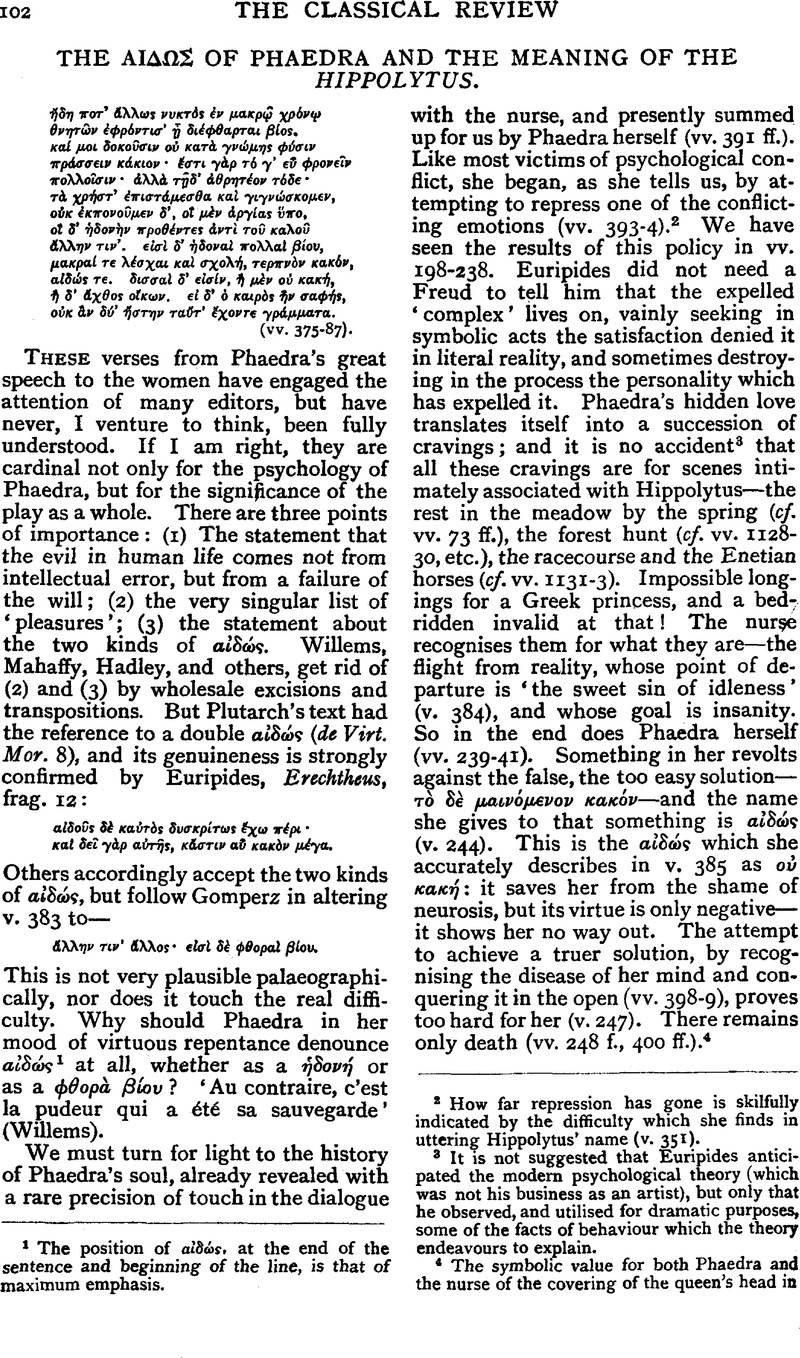No CrossRef data available.
Published online by Cambridge University Press: 27 October 2009

page 102 note 1 The position of αἰδώς, at the end of the sentence and beginning of the line, is that of maximum emphasis.
page 102 note 2 How far repression has gone is skilfully indicated by the difficulty which she finds in uttering Hippolytus' name (v. 351).
page 102 note 3 It is not suggested that Euripides anticipated the modern psychological theory (which was not his business as an artist), but only that he observed, and utilised for dramatic purposes, some of the facts of behaviour which the theory endeavours to explain.
page 102 note 3 The symbolic value for both Phaedra and the nurse of the covering of the queen's head in the crisis of choice (v. 243) isa faultless piece of observation.
page 102 note 4 The symbolic value for both Phaedra and the nurse of the covering of the queen's head in the crisis of choice (v. 243) is a faultless piece of observation.
page 103 note 1 These are the only two occasions, apart from the speech tothe women, when she uses the words αἰδώς, αἰδεῖσθαι.
page 104 note 1 I purposely leave out of account the mythological framework of the play. The artist has wisely made this framework detachable, so that we may, if we please, study his human drama in isolation from its traditional setting. Since Verrall, many of us have been inclined to admire the frame almost to the exclusion of the picture.